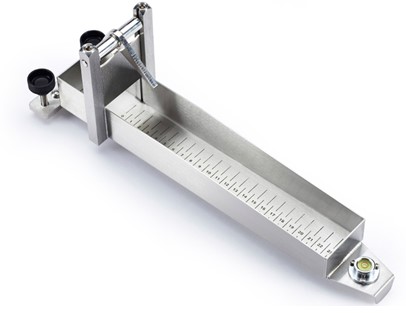Only half of forest companies have changed their strategies amid sanctions

Fifteen months after the start of Russia's special military operation in Ukraine , which led to the imposition of Western sanctions , 50% of Russian companies in the timber industry complex (TIC) have adjusted their development strategy. This is stated in a study by the consulting company Strategy Partners based on a survey of 52 leading companies representing all major regions of RUSSIA and the timber industry. RBC has a copy of the study .
Who was interviewed
Strategy Partners' questions were answered by medium-sized companies with revenues from 0.5 billion to 5 billion rubles, as well as fairly large ones - about 10 billion rubles, as well as federal level players with sales of more than 100 billion rubles. per year, explained Pavel Bilibin, partner at Strategy Partners. In total, they form more than 20% of the turnover of the timber complex. The survey involved such companies as the world's largest plywood manufacturer Sveza (among the co-owners are the structures of Alexei Mordashov), one of the leading timber holdings in Russia, Segezha Group (part of AFK Sistema), the largest forest user in the Vologda Oblast " Vologda Timber Industry” (ranked 10th in the top 50 largest timber companies in Russia in terms of revenue according to the Forest Industry magazine in 2021), RFP Group, the main timber industry holding in the Far East, and others.
Of the remaining half of the companies that have not yet changed their strategy, 28% do not intend to do so, and 22% only plan to. “This balance of responses suggests that quite a few companies believe that a change in strategy is not a critical survival mechanism for the business and are trying to save the business through tactical decisions,” the study says. “This approach seems to be fundamentally wrong, since the industry is not dealing with a cyclical deterioration in the situation, but with a change in the fundamental conditions for access to EXPORT markets.”
A representative of Sveza, which announced last summer about underloading up to 80% of its capacities due to the inability to export products, confirmed to RBC that the company took part in the Strategy Partners survey and changed its strategy. “In 2022, Sveza adjusted its development strategy, shifting the focus to available markets. In addition, we continued to strengthen ourselves in the domestic market, which has always been one of our priorities,” he said.
A representative of the Segezha Group declined to comment. RBC sent inquiries to representatives of Vologda Lesopromishlennikov, RFP Group, as well as Russia's largest pulp and paper company Ilim.
What sanctions were imposed against the PKK
The European Union, which accounted for 75% of the supply of forest products from Russia to "unfriendly" countries, introduced a ban on the import of most of these products back in April last year . All main categories of goods shipped abroad fell under it: wood and products from it, charcoal, wood pulp, kraft paper and some types of kraft cardboard, as well as furniture and its parts. As a result, according to the Roslesinforg structure of Rosleskhoz, exports worth $6 billion fell under sanctions, based on 2021 data.
Read PIONERPRODUKT .by 350 companies are preparing to launch an air taxi. Who Will Become the Market Leader in Organizing Design Businesses: Why Product Companies Are Slow to Achieve Targets Major US banks have shown good results. What darkens the overall picture What ideas about the watch are outdated and what is its modern versionLumber ($1.4 billion) and plywood ($0.8 billion) made up the bulk of foreign deliveries. According to the Ministry of Industry and Trade, 4 million tons of plywood were produced in Russia, of which 3 million tons were exported (including 60%, that is, 1.8 million, to the EU ). The largest European buyers of Russian forest products subject to restrictions are Finland, Germany , Estonia and the Netherlands, enterprises in the western regions (primarily in the Arkhangelsk and Vologda regions, as well as in Karelia and Komi) were oriented towards them. Against this background, the HEAD of Sveza, Anatoly Frishman, said that “the situation is approaching catastrophic,” and called on the authoritiesfree companies from unnecessary inspections by government agencies. “Our main task is to find new orders and restore production volumes, so I would like to spend time on these tasks, and not on constant communication with regulatory authorities,” he noted at a meeting in the Federation Council, where the impact of sanctions on the state of the timber industry was discussed.
Last July, new EU sanctions came into effect, which imposed a ban on the supply of pellets (fuel pellets), paper and other remaining timber products from Russia. Annually, 2.6-2.8 million of these pellets were produced in the country. Of these, 2.4 million tons worth €504 million were exported in 2021, mainly to Europe. At that time, market participants warned that due to these restrictions, sales of biofuel from wood pellets would be reduced by 80%, and the authorities promised to convert boiler houses to pellets and develop the domestic market. Because of these sanctions, Segezha Group had to sell its European paper mills Segezha Packaging for debt. According to the head of the Segezha Group, Mikhail Shamolin, this was the only way to keep the business in working order: since last summer, the supply of raw materials to factories in Europe has become impossible.
How companies change strategy
Sveza has historically pursued a policy of diversification both in terms of its product portfolio and geographically, its spokesman says. For example, the company developed the presence of its products in certain promising areas, such as the countries of East Asia, the Middle East and Africa. “During this time, we were able to study the markets, customer preferences and supply chains, as well as build a customer base,” the representative says. Sveza actively participates in international exhibitions. So, since the beginning of this year, she has presented her products to potential customers in CHINA, India, South Africa, Turkey and Uzbekistan.
Shamolin said last December that the Segezha Group is considering setting up paper packaging production capacities in other regions of the world. “We are looking closely at Turkey as one of the examples. We are looking closely at Egypt: there is a fairly large paper production hub,” he said at a meeting with investors. Among other interesting markets for the company, the top manager named South Africa, Malaysia, Vietnam , China and Mexico. “There are a number of geographies where investments in converting (packaging production. -) facilities make sense. It is too early to talk about specific transactions, but we have a team that is now carefully studying all this, ”he said.
But at the end of last March, at a briefing with journalists, Shamolin said that now Segezha Group plans to focus on investment projects related to improving the efficiency of existing facilities, and she will postpone more global projects, such as building production facilities in new countries, to a more distant future.
Key changes concerned the pause and processing of investment projects, including in terms of the composition and performance of equipment, says Bilibin. “In terms of operating activities, the companies were engaged in their repositioning in foreign markets - the restructuring of the distribution network, pricing strategy, partnerships with logistics operators,” he adds. For example, the FESCO group last June at the St. Petersburg Economic Forum agreed on a partnership with several timber companies.
According to Strategy Partners, large companies have begun to pay more attention to R&D and the development of import-substituting products. “However, market participants have generally lost interest in the digitalization of processes, as well as in ESG topics. At the level of communication with companies, it is clear that the interest in digitalization itself is not decreasing, especially among managers involved in production, Bilibin notes. “It’s more about limiting the company’s financial capacity to invest in this area.”
Last year, the revenue of timber companies decreased by 5% compared to 2021, to 2.3 trillion rubles, and by the end of the current year, Strategy Partners expects a decline of 10%. This is due to the fact that the weakening of the ruble has significantly improved the accessibility of a number of export markets for Russian companies, and is also already positively affecting the ruble equivalent of foreign exchange earnings. The devaluation of the ruble will partially compensate for the decline in volume deliveries.
Read together with it:
- A fire at the Merci Agro Sakhalin pig farm killed 1,500 pigs, but pork production will not be affected.Deputy Minister of Agriculture and Trade of the region Inna Pavlenko noted that other pig farms will help compensate for the loss. Merci Agro Sakhalin plans to restore its capacity and livestock, which will help avoid a pork shortage on the local market. The restoration will be funded by insurance payments, and veterinarians have already analyzed the condition of the remaining animals and determin...
- An HSE expert reported on the "evolution of inequality" in access to healthcare.An HSE researcher analyzed Russians' access to healthcare over a ten-year period. In 2021, the influence of financial factors became noticeable for the first time: low income reduces the likelihood of visiting a DOCTOR.Over the ten years from 2011 to 2021, the number of Russians requiring medical care but not receiving it remained virtually unchanged, according to a study by Lyudmila Zasimova, hea...
- The IEA sees a risk of a decline in oil production in Russia due to sanctions.The IEA sees a risk of reduced oil production in RUSSIA due to US sanctions , but maintains its production forecast. According to the IEA, Russian oil exports will remain unchanged.There is a "significant downside risk" to Russia's oil production forecast due to US sanctions, the International Energy Agency (IEA) said in a report.BLOOMBERG . The agency's experts believe that the latest US sanction...
- UniCredit заявил о галактических усилиях из-за санкций против РоссииUniCredit старается не нарушить «более 15 тыс. санкций», а также не «совершать ошибки», которые позволят изъять его активы в России, заявил гендиректор. После начала военной операции банк начал рассматривать возможность ухода Итальянский банк UniCredit прилагает «галактические усилия», пытаясь соблюсти международные санкции в отношении своего российского подразделения. Об этом заявил генеральный д...
- "Коллективы АПК способны решать любые задачи даже в непростых условиях". Назаров о заслугах сельхозпроизводителейЮрий Назаров 13 ноября, Минск. Обеспечение продовольственной безопасности страны - большое достижение трудовых коллективов аграриев, отметил управляющий делами Президента Республики Беларусь Юрий Назаров на торжественной церемонии награждения государственными и иными наградами работников АПК Управления делами Президента Республики Беларусь, передает корреспондент БЕЛТА. Торжественная церемония наг...
- Russian agriculture: self-sufficiency continues to growThe industry has a track record of implementing new technologies and increasing productivity. RUSSIA is already confidently self-sufficient in grain, MEAT, fish, vegetable oil, and SUGAR. Grain and vegetable production is also forecast to be higher this year, despite unfavorable weather conditions in some regions. The Ministry expects historic highs for some crops and continues to support agricult...
- Sustainable growth of the food and processing industries in BashkortostanIlshat Fazrakhmanov, Deputy Prime Minister andThe regional Minister of Agriculture noted that the development of these industries provides the population with essential food products and contributes to increased exports. Since 2020, agricultural exports from the region have doubled. Since the beginning of 2......



























































